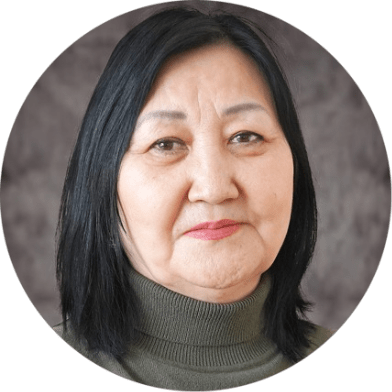×

head of the department
Senior Lecturer
Master of Social Sciences
Tel.: +7 7212 77 00 36
E-mail: polsoc@buketov.edu.kz
1 Mukanov Street, building №8
The Department of Political Science and Sociology was founded in 1995. It provides bachelor's and master's degrees and trains specialists in the field of political science and sociology. Students of the department have the opportunity to study along two trajectories: "Political Science","Sociology".
Political science students study such academic disciplines as "Political Power", "Policy of countering terrorism and extremism", "National Security of the Republic of Kazakhstan", "Domestic and Foreign Policy of the Republic of Kazakhstan", "World Politics and International Relations", "Political Technologies", "Elitism", "Image in Politics", "Political Conflictology", "Geopolitics", etc.
Students of sociology study such academic disciplines as "Management Sociology", "Image Theory", "Methods of conducting sociological research", "Sociology of Entrepreneurship", "Internet Sociology", "Ethnosociology", "Family Sociology", etc.
Students of the department have access to the world's information resources, databases of periodicals and scientific literature.
All second-year students have internships in state bodies – akimats, maslikhats, departments and ministries, as well as pass pedagogical practice, interning in secondary specialized educational institutions of the city and region.
Graduates of the department can work in government agencies, engage in expert and analytical activities, and teach.
The department actively conducts research in several research areas: "Kazakhstan's model of transformation: socio-political context", "Sociology of gender and family", "Sociology of Science, political aspects of the formation of intellectual elites".
Dates and facts
Teachers:
Today, the department employs 18 teachers, including doctors, candidates and masters of Science, holders of the republican title "Best University teacher".
Accreditation and leadership:
All programs of the department have national accreditation and occupy worthy positions in national ratings.
Academic mobility:
Most students and teachers get the opportunity for international internships and participation in scientific and practical conferences, seminars and Summer Schools with the participation of such international organizations as Central Asia Research and Training Initiative, RESET, DAAD, TEMPUS, UNDP, Central Asian Center for Gender Initiatives, etc. In addition to basic academic scholarships, students can also apply for scholarships from foreign universities, public foundations in the framework of international internships, as well as scholarships from the Academic Council of the University, the regional Akim and the President of the Republic of Kazakhstan.
Partners:
The Department maintains a wide range of contacts for the exchange of experience and cooperation in the field of science and education with leading universities and research centers in Kazakhstan and near and far abroad: the Friedrich Ebert Foundation Center for Gender Studies (Germany), the University of Central Europe, Budapest (Hungary), the HESP Foundation, the Open Society Institute in Budapest (Hungary), Charles University in Prague (Czech Republic), the Davis Institute of Harvard University (USA), the Society for Central Eurasian Studies (USA), the Institute of Sociology of the Russian Academy of Sciences (Russia), St. Petersburg State University (Russia).
Graduates:
Many graduates of the department have a successful career and work today in the Office of the President of the Republic of Kazakhstan, the Office of the Akimat of Astana, the Office of the Akimat of Temirtau, the Department of Internal Policy of the Karaganda region, the Department of Employment and Coordination of Social Programs of the Akimat of Karaganda, the Kazakhstan Institute for Strategic Studies, Astana, the Center for Social Technologies, Almaty, the Center for Military-Strategic Studies of Astana, the Department of the National Security Committee of Pavlodar region, the Department of Internal Policy of Karaganda, the FSB of the Russian Federation.
Educational programs
6B03101 - «Sociology»: Bachelor's degree. The program is aimed at training specialists who have the necessary skills to analyze and develop recommendations in the economic, political and social spheres. Graduates of the program receive a bachelor's degree and can work as specialists in the study of public opinion, consultants and experts of public foundations and non-governmental organizations, engage in marketing, advertising, and image management activities.
6B03103 - «Political Science»: Bachelor's degree. The program is aimed at training in the history and theory of politics, the history of political studies, political analysis and forecasting, comparative political science, political conflictology, political sociology and psychology, public policy and management, world politics, international relations and geopolitics, and the political process in Russia.Kazakhstan. Graduates of the program receive a bachelor's degree and can work as consultants, advisers, heads of departments and offices; political strategists, image makers, public relations specialists.
7M03101 – «Sociology»: Master's degree program. Graduates who receive a master's degree in social sciences will be able to teach at universities, engage in scientific activities, work as consultants on social issues, specialists in the study of public opinion in social research institutes, non-governmental organizations.
7M03102 – «Political Science»: Master's degree. The program is related to the study of the political system of society, issues of distribution and division of political power. In the course of training, the master's student will learn how to apply and integrate knowledge in the field of political science; organize research in the field of politics on a scientific basis; develop programs for people involved in the political process; master the methodological foundations, principles, mechanisms and conditions for improving the effectiveness of political activity by using new realities of the time, etc. Graduates receive a master's degree in social sciences and will be able to work in the higher education system, teach, engage in scientific activities, and be a political specialist in administrative institutions, organizations, and law-making bodies.
